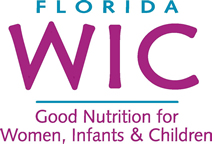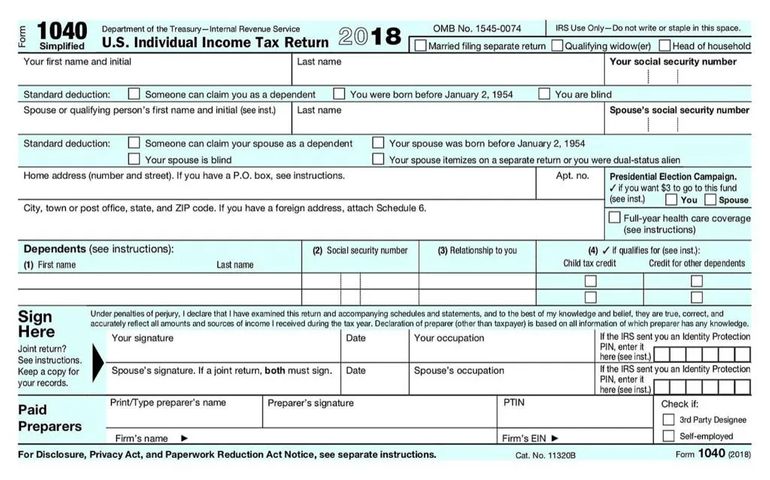Finances in Foster Care
A Guide to Foster Care Payments and Financial Support in Orlando
Foster Care Stipend
A foster care payment is provided to foster families to help cover child expenses like food, utilities, and other necessities.
Monthly Stipend
A foster care payment is provided to help cover child expenses like food, utilities, and other necessities. CBC lead agencies usually issue checks on a monthly basis. The amount is based on the level of care required and the child’s age.
The foster care payment is considered a reimbursement by the IRS and does not need to be reported as income for tax purposes.
Common Questions
BLANK
Your content goes here. Edit or remove this text inline or in the module Content settings. You can also style every aspect of this content in the module Design settings and even apply custom CSS to this text in the module Advanced settings.
How much is a typical foster care stipend in Orlando?
The following reflects the current minimum rates in Florida as of January 2024. Rates can be higher depending on the needs of the child.
Relative and non-Relative (Level I):
Legislation passed effective July 1, 2022 reimburses relative/non-relatives with a level 1 license at the same rate as licensed foster families.
General foster care minimums (Level II):
| Age 0-5 | $570.36/mo | |
| Age 6-12 | $584.98/mo | |
| Age 13-21 | $684.70/mo |
*Level II foster parents in Orlando receive approximately $20/day or closer to $600/mo.
Effective, July 1, 2022, a 10% supplemental room and board payment to foster parents is provided for children who are 13 through 17 years of age placed in their care.
Level III, IV and V foster homes receive higher rates. These are not published, but can exceed $1000/mo.
How is the payment made?
The stipend is typically paid on a monthly basis in the form of check or direct deposit.
Where does the stipend come from?
The stipend is provided by the CBC lead agency.
Do I have to report the stipend as income to the IRS?
No. The foster care stipend is considered a reimbursement for expenses you may incur as a foster parent and is not considered income. This is also true for any other vouchers or reimbursements provided by your foster care agency.
WIC Formula and food Subsidies
Florida WIC provides formula and food supplements for all foster children under age 5.
Applying for WIC
WIC provides vouchers to cover formula for infants and young children. To start using WIC:
Make an appointment: Contact your local WIC clinic to make an appointment and bring documentation detailed below. You child’s social worker should help you enroll, but it will likely be slower than doing it yourself.
Bring documentation: Bring the required documents (see below) to your appointment and complete an application. Once approved, you will receive a WIC EBT Card which holds your WIC balance. You can check your balance here. Make sure to remember your WIC PIN which will be required any time you use your card.
Bring your children: At your initial appointment, be sure to bring all of your foster children age 5 and younger. Each child will undergo a brief physical as part of the initial application process.

Using WIC
Fresh EBT: Download the Fresh EBT app for iPhone or Android to check your benefits.
Monthly appointments: Follow-up at your local WIC clinic bi-monthly, where the balance on your card will be replenished. Your clinic will also assign specific foods or infant formula to your card. Your card balance can only be applied to these specific products.
Where to shop: Not all stores accept WIC. Use the WICShopper app to find participating stores. If you are using WIC at a store for the first time and don’t have the app, it may be a good idea to call ahead to make sure the store accepts WIC.
Shopping: At the store, make sure to only choose the exact brands and products assigned to your card. The WICShopper app allows you to scan items in the store to see if they are on your benefit list. Your balance cannot be applied to anything else. At checkout (you cannot use self-checkout), tell your cashier that you are using a WIC card. They will be able to scan your WIC items to ensure they are covered by your WIC benefits. You will need your PIN to use your card at the register. Once your purchase is complete, the cost will be applied to your WIC balance. Your receipt will show your remaining balance for the month.
What is Covered: Most importantly, until 12 months, WIC covers a sufficient amount of formula for the entire month. After the child turns 1, WIC covers foods that are important for a baby’s development such as milk, beans, whole grain breads, cheese, brown rice, cereal, fruits and vegetables, eggs and more.
For more information on WIC in Florida, visit Floridawic.org.
Requirements for WIC Application
Identification
- Foster Parent proof of identity:
- Driver’s license, Photo ID Card, Passport
- Another photo ID plus a bill, rent receipt
- Proof of Foster Placement:
- Foster parent placement letter
Other
- All foster children age 5 or younger (for physical evaluation)
- Immunization records (if available)
- Medicaid card (if available), Social Security Card (if available)
Note: proof of income is not required for foster parents
Childcare and Daycare
Multiple avenues are available to receive support for childcare and daycare
Childcare Subsidies
Foster children are eligible for subsidized child care through the School Readiness program, in collaboration with the Early Learning Cooalition.
Income information is typically required when applying for funding, although income is not taken into consideration for foster parents applying for childcare aid.
Contact your local Early Learning Cooalition about the school readiness program in your county.
Applying for Subsidies
Applications should be submitted by the child’s case manager. Be sure to let them know you will need to have daycare for your foster child as early as possible.
You will need to find a daycare provider in your area who accepts School Readiness funds as a form of payment. Typically, this will only cover a portion of the cost and the remaineder will be the responsibility of the foster parent. In our experience, we still paid ~$40/week with the subsidy.
Other Financial Support
Various forms of financial support are available to Orlando foster parents in addition to the monthly stipend.
Clothing Allowance
Twice per year at discretion of CBC lead agency
In the past, the agency typically provided a clothing allowance twice per year (~$100-$300 per child). Once around the time of school and once around Christmas. Ask your licensing worker about your agency’s clothing allowance. The stipend is included with your monthly board payment as a check or direct deposit and can be used at your discretion.
Outside of the clothing allowance, it is the foster parent’s responsibility to provide seasonal and age-appropriate clothing. The foster care stipend is meant to help cover these additional costs.
If the child is moved to a new home, a new clothing allowance is not provided. Any clothing purchased with the clothing allowance belong to the child and should go with them to their new home.
Medical Coverage
Ongoing while in care
All children in Orlando foster care receive medical coverage through Medicaid. At the time of initial placement, the child’s caseworker should provide the child’s Medicaid card and information. If this information is not provided, follow up with your caseworker to obtain it. For more information on insurance, see the healthcare page.
Early Steps
Ongoing while in care
Early Steps is Florida’s early intervention system that offers services to eligible infants and toddlers, age birth to 36 months, who have or are at-risk for developmental disabilities or delays. For more information, see the healthcare page.
School Lunch Program
Ongoing
All Orlando area schools offer free breakfast and lunch to all students who are currently in foster care. Contact your student’s school for more information.
Adoption Subsidy
Monthly until 18 years old
If you adopt a child out of foster care in Florida, you will be eligible for an adoption subsidy. This is typically less than the monthly board rate, but will be approximately $450/month or more depending on the special needs of your child. This payment will be made until the child turns 18 years old.
College Tuition
Until child turns 28 years old
Florida’s children adopted from care are eligible for free tuition at any Florida state university, community college or vocational school in Florida up until age 28. Additionally, some Florida private institutions of higher learning will provide free tuition for children who have been adopted from foster care.
Postsecondary Education Services and Support (PESS)
Children between 18 and 23 years old
PESS is a state program for eligible former foster youth to receive the skills, education, and support necessary to become self-sufficient and have lifelong connections to supportive adults. Depending on certain statutory conditions, eligible youth may receive a monthly financial payment of $1,720 (As of July 1, 2022) if they are enrolled a Florida Bright Futures eligible institution. More details here.
Keys to Independence
Children between 15 and 21 years old
This program will reimburse youth and caregivers for the costs associated with driver’s education, driver’s licenses and other costs related to getting a driver’s license as well as motor vehicle insurance.
Tax Breaks for Foster Parents
There are a few income tax breaks that all foster parents should be aware of when completing their taxes.
Reporting Income
All monthly foster care payments, subsidies, and reimbursements do not need to be reported on your income tax return. These payments are considered reimbursements for expenses incurred by the foster family, and are therefore not income.
Claiming Dependents
Foster children may be claimed as dependents on your tax return as long as they lived in your house for 6 months of the last tax year. For infants born during the tax year, they must have lived with you for half their life plus 1 day. For example, a child born on 9/22 would need to be with you for 51 days of that year (out of the 100 days between 9/22 and 12/31). The main benefits of claiming dependents are the child tax credit and the dependent care tax credit.
The IRS definition of foster child is “a child placed with you by judgment, court order or an authorized placement agency (state or local government organization).” You will need the child’s social security number to report them as a dependent.
Challenges
Sometimes, the biological parent will claim the foster child on their taxes. In this case, the IRS will send you a letter asking for proof that the child lived with you for half of the year. This will delay your taxes by several months.
Adoption Tax Credit
In 2024, the adoption tax credit provides a credit of $16,810 per child adopted out of the foster care system. You do not need to have documented expenses because this is considered a special needs adoption. The credit is nonredundable but can be carried forward for up to 5 years to offset future taxes.
Learn More About Foster Care
The following guides can help get you up to speed on several important aspects of foster care in Orlando.
Finances
Learn about financial support available for foster parents.
Healthcare
Learn about healthcare topics such as doctors visits and insurance.
The Legal System
Learn about family court, hearings, and child custody.
Caseworkers and Visits
Learn about the different types of caseworkers, home visits, and parent visits.
New Placements
Learn about what to ask when receiving a new placement and the first week in care
School and Daycare
Learn more about education, school, and daycare.
Adoption and Permanency
Learn about foster care, adoption, and foster-to-adopt.
Foster Care Policies
Learn about policies like travel and babysitters

